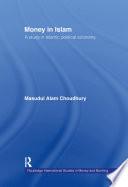
Changing Patterns of Teacher Education in South Africa
Policy, Practice and Prospects
This book explores policy and practice in Teacher Education in South Africa and their implications for the future. It arises from the work of the Multi Site Teacher Education Research Programme (MUSTER) co-ordinated by the University of Sussex in five countries, of which South Africa is one. Teacher education in South Africa is in transition. The first wave of educational reform rightly focused on the need to develop a post-apartheid school curriculum and the new structures that were needed to support different approaches to learning. Teacher education was made a Provincial competence and left largely untouched until new norms and standards and a regulatory framework began to be developed.
- ISBN 10 : UOM:39015058216873
- Judul : Changing Patterns of Teacher Education in South Africa
- Sub Judul : Policy, Practice and Prospects
- Pengarang : Keith Lewin, Dr. Michael Samuel, Yusuf Sayed,
- Kategori : Teacher educators
- Bahasa : en
- Tahun : 2003
- Halaman : 430
- Google Book : http://books.google.co.id/books?id=19-cAAAAMAAJ&dq=intitle:Teacher+Training+Professional+Development&hl=&source=gbs_api
-
Ketersediaan :
playing key roles in the development of their national education systems . There was little evidence that most teacher education staff was engaged directly in curriculum development , either at school level or in teacher education .





